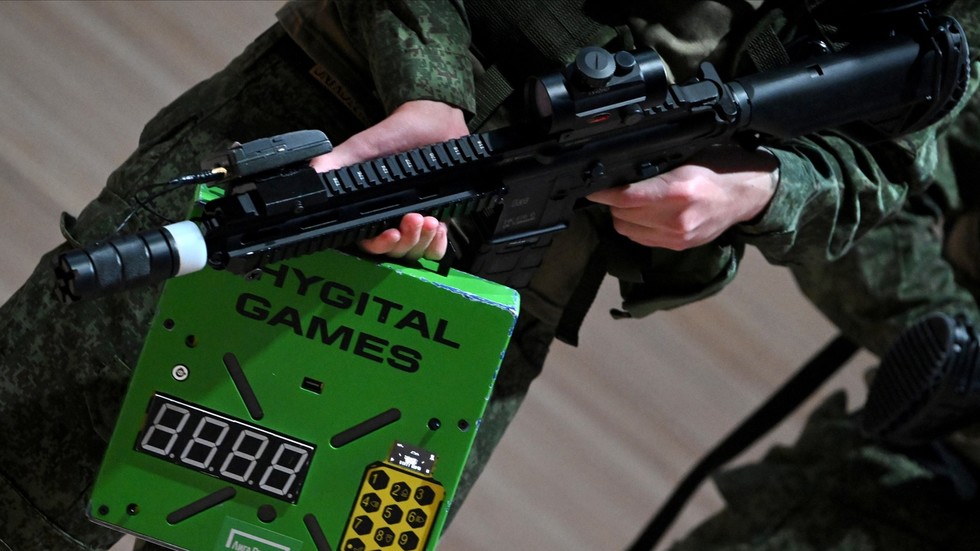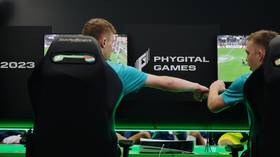
The major international tournament culminated with tournaments for tactical shooters plus lasertag

© Sputnik / Maksim Bogodvid
Phygital Games 10, an international event that combines electronic and conventional sports, concluded in the Russian city of Kazan on Sunday.
The Games, which ran from October 5 to 22 and were the largest event in the series to date, involved five disciplines: phygital basketball, hockey, football, a mobile game, and tactical shooters.
The Games culminated with two tournaments for tactical shooter games – Counter Strike: Global Offensive and Warface. The tournaments had similar rules, with competing teams playing the shooters on two maps until one of them reached 16 and 11 wins, respectively. If a winner was not determined during the electronic phase, the teams would compete in physical lasertag to determine the winner. However, if a decisive result was achieved during the shooter stage, the lasertag part would be held anyway but would not affect the outcome.

In both tournaments, only Russian teams made it to the finals. In GS:GO, Donstu Esports, a team affiliated with Don State Technical University, dominated its opponent Cherepahi, winning the bout 2:0. In lasertag, however, the champions were defeated 6:0.
“We played the first map 13:16, a little short. We needed one map to make the score 1:1 and enter a lasertag. We ended up winning the show match 6:0. This is phygital, if we sum it up, then everything is quite fine with us,” Alexey ‘Gralin’ Shaulin, Cherepahi’s coach, said.
In the Warface final, the digital stage resulted in a draw between Godlike and HLS. The result was determined in lasertag, with Godlike prevailing after three tense rounds.
The winners have qualified for the first-ever Games of the Future, a major international phygital tournament set to take place in Kazan next February. According to its organizers, the event will bring together participants from more than 100 countries to compete in various phygital disciplines.




